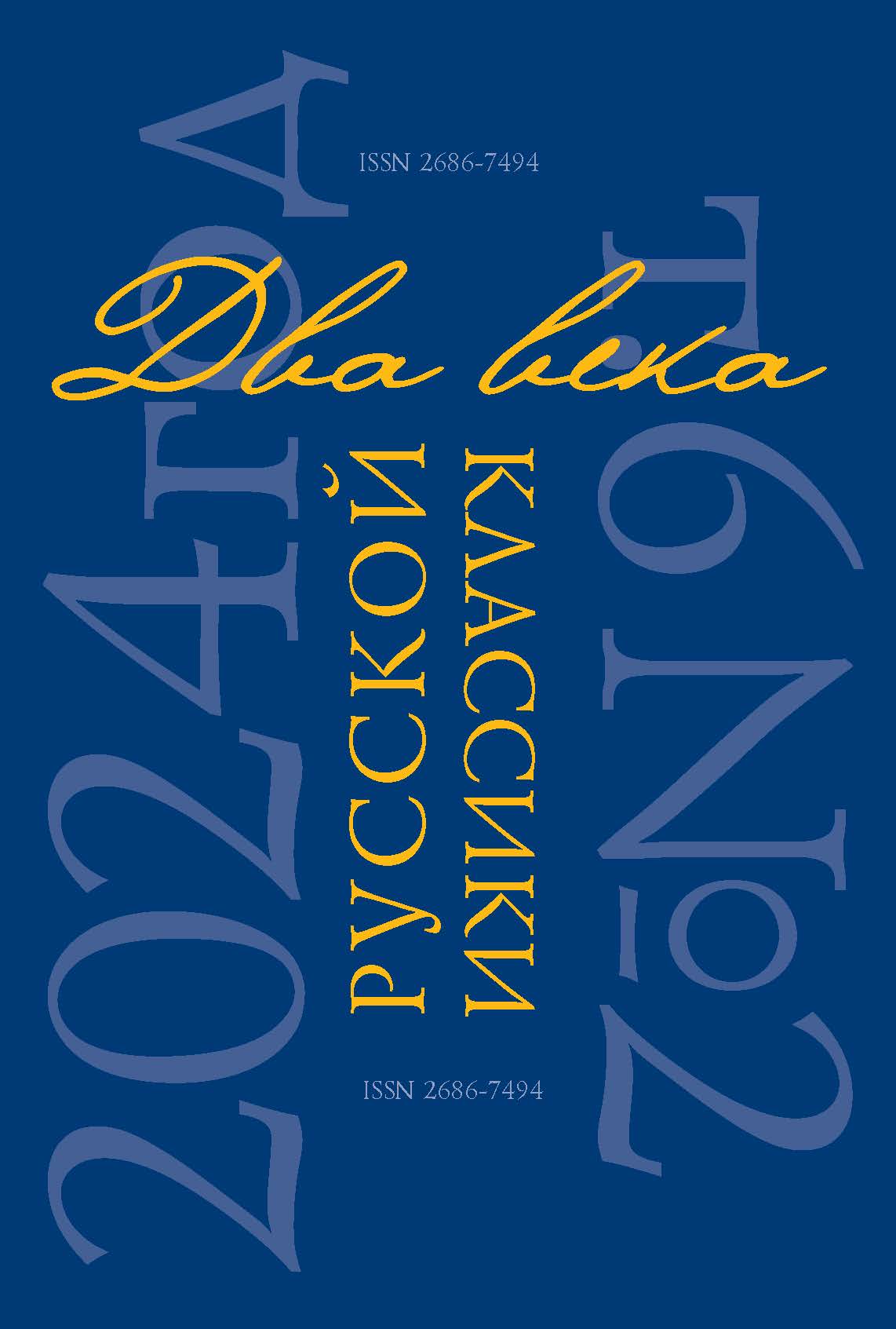Abstract:
Based on the autobiographical notes of A. T. Bolotov, the article traces the main stages of the spiritual development of a Russian nobleman-landowner of the mid‑18th century through his travels in Western Europe and provincial Russia. Western civilization and culture, which the hero met while serving in Koenigsberg, gave a powerful impetus to the spiritual formation of the young memoirist. Returning to his small homeland and subsequent travels around Russia helped him gain a sense of root connection with his native soil through the creation of a family, communication with numerous relatives, through attachment to the family estate as a place of application of the creative forces of the soul. In the course of comparing the two stages of Bolotov’s life, the author of the article concludes that the small homeland is of great importance in the process of forming the personality of the hero of the 18th century during the era of the Russian Enlightenment. The author of the article proves that Bolotov was a type of character of the 18th century, harmoniously combining Western idealism (pietism) and Russian pochvenism. Particular attention is paid to the descriptions of the hero’s travels in provincial Russia, which are assessed as an original and innovative phenomenon in Russian travel literature of the late 18th – early 19th centuries.
References
Borovaia, A. A. Filosofsko-antropologicheskie dominanty v filosofii russkogo prosvetitelia A. T. Bolotova [Philosophical and Anthropological Dominants in the Philosophy of the Russian Educator A. T. Bolotov: PhD Thesis, Summary]. St. Petersburg, 2008. 17 p. (In Russ.)
Lotman, Iu. M., Uspenskii, B. A. “ʽPis’ma russkogo puteshestvennika’ Karamzina i ikh mesto v razvitii russkoi kul’tury” [“Russian Traveler’s Letters by Karamzin and their Place in the Development of Russian Culture”]. Karamzin, N. M. Pis’ma russkogo puteshestvennika [Letters of a Russian Traveler]. Leningrad, Nauka Publ., 1984, pp. 525–606. (In Russ.)
Panteleev, I. V. “Sootnoshenie promysla Bozh’ego i svobodnoi voli cheloveka v ‘Zapiskakh’ A. T. Bolotova” [“The Correlation of God’s Providence and Man’s Free Will in A. T. Bolotov’s ‘Notes’.”]. Sviatitel’ Tikhon Zadonskii na perekrestke traditsii (Afon–Valaam–Zadonsk–Optina Pustyn’–Solovki). Materialy XIV Mezhdunarodnogo foruma [St. Tikhon of Zadonsk at the Crossroads of Traditions (Athos–Valaam–Zadonsk–Optina Pustyn–Solovki). Proceedings of the 14th International Forum]. Lipetsk, Lipetsk State Pedagogical University Publ., 2019, pp. 14–16. (In Russ.)
Pen’kova, E. A., Bolotov, A. T. “O smysle zhizni cheloveka” [“On the Meaning of Human Life”]. Kul’tura. Dukhovnost’. Obshchestvo, no. 7, 2013, pp. 98–102. (In Russ.)
Shcheblygina, I. V. A. T. Bolotov: garmoniia mira i dushi. Tsennostnye orientatsii i tvorcheskie interesy [Bolotov: Harmony of the World and the Soul. Value Orientations and Creative Interests]. Moscow, Andreevskii flag Publ., 2003. 285 p. (In Russ.)









